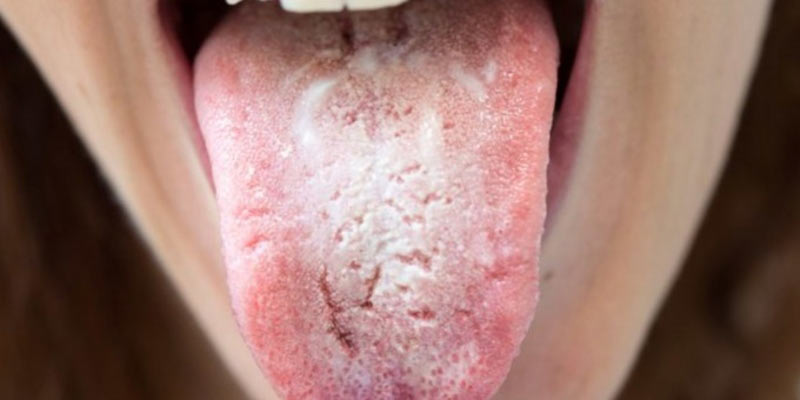Post-Traumatic Stress Disorder (PTSD): Recovery and Treatment
Oct 15, 2024 By Celia Shatzman
If you or someone you know just went through a trauma, you should know about PTSD and how it can be treated. Post Traumatic Stress Disorder is a mental condition that some people develop after having a distressing event in their lives. They feel scared, anxious, stressed, and ashamed afterward. Now, the question is, how can someone recover from this condition?
Different kinds of therapies, including cognitive therapy, prolonged exposure therapy, and medication, are good and effective ways for the treatment of PTSD. The patients should also take care of their diet and sleeping patterns to heal sooner. So, without wasting any time, let us learn more about this!

Diagnosis of Post Traumatic Stress Disorder
Most of the diseases are diagnosed and confirmed by some diagnostic tests. But, as PTSD is a mental disorder, there is no specific test for its diagnosis. Your doctor can make the diagnosis based on the following:
- Signs and symptoms
- Medical history
- Mental health history
- Exposure to the traumatic event
According to mental health experts, you must have the symptoms for at least a month to consider yourself a PTSD patient. These symptoms include
- At least one intrusion symptom
- At least one avoidance symptom
- Minimum of two thinking and mood symptoms.
- Minimum of two arousal symptoms
Recovering and Healing from PTSD
How a person reacts to a traumatic event depends on various factors, including age, personality, and past experiences. If you have Post-Traumatic Stress Disorder, you can heal in the following ways:
- Getting Professional Help: If you experience any symptoms of PTSD, you should consult a doctor so that it doesnt become more complicated. Seeing a doctor is important to confirm the diagnosis and start the treatment promptly. They would also suggest and teach you other ways to deal with the stress you are going through.
- Talk About It: It would be best if you did not solely depend upon your doctor for the recovery and treatment of PTSD. There are different ways to cope with this on your own as well, in addition to medication. Talking to someone you trust about how you feel would be best. It will help you to feel relaxed and lessen the severity of your symptoms.
- Taking Care of Yourself: When stressed or anxious, you are more prone to other diseases. So, to improve mentally, it would be best to take care of your health and sleeping patterns. Eat a nutritious and healthy diet, exercise, and get enough sleep. Doing all these can reduce your stress levels, ultimately helping you with PTSD.
Treatment of Post Traumatic Stress Disorder
If you leave post-traumatic stress disorder untreated for a long time, it won't be easy to manage the condition of the patient. It can then lead to other lifelong diseases. The therapy for Post-traumatic stress disorder has three main goals:
- To improve the symptoms
- To teach you how to deal with it.
- To restore the self-esteem of the patient.
Now, let's look over different treatment options that can be effective in dealing with this disorder:
Cognitive Processing Therapy
Cognitive processing therapy is a 12-week treatment for PTSD. The patients have to attend weekly sessions of 60-90 minutes. You need to tell about your condition to your therapist openly and then write it down. It helps you and your therapist examine properly and then find the solution.
Prolonged Exposure Therapy
Prolonged exposure therapy is for those who have been avoiding the traumatic event for a long time. This kind of therapy helps you overcome the things associated with the bad experience. It consists of 8-15 sessions, each 90 minutes long. In this, you will learn some breathing techniques to reduce the anxiety.
Eye Movement Desensitization and Reprocessing
This kind of therapy doesn't involve discussing your experiences with the therapist. During EMDR, you need to concentrate on what your therapist does, such as making sounds or moving a hand. The main objective is to make you think positively and escape the traumatic experience. It takes about three months to complete.
Stress Inoculation Training
You can do stress inoculation training either in a group or individually. The main focus of this training is to change the way you deal with a stressful event. It will save you from mental disorders if you ever experience another painful event in the future. This training teaches you some massage and breathing methods to eliminate negative thoughts. It is completed in about three months.
Trauma Focused CBT
In Trauma-focused cognitive behavioral therapy, the patient learns about their body and how it reacts to stressful situations. The therapists also teach patients about thinking patterns and symptom management skills. Exposure therapy is a good example of trauma-focused CBT.
Medications
If only therapy doesnt work for a PTSD patient, they have to switch to medications. PTSD patients react to stressful situations differently than normal human beings because they have abnormal levels of some hormones and neurotransmitters. Their fight-or-flight response is easily triggered. Medicine helps them avoid thinking about what happened in the past to feel normal and healthy again.
There are different kinds of effective and reliable medicines to treat post-traumatic stress disorder. Usually, the treatment is started with a medicine that affects serotonin and norepinephrine. These medicines include:
- Fluoxetine (Prozac)
- Parotexine (Paxil)
- Venlafaxine (Effexor)
Not every patient suffers from the same condition and does not respond to medication similarly. Your doctor might prescribe some medicines from the following list.
- Beta-blockers.
- Antidepressants
- Second-generation antipsychotics
- Benzodiazepines.
How to Prevent PTSD?
One cannot prevent bad times and upsetting events that happen in one's life, but one can somehow prevent developing mental disorders that might occur due to these events. If we learn how to react to and process stressful events, we can prevent PTSD. The protective factors of PTSD are the following:
- Family and friends support.
- Being a part of a support group.
- Learning to feel good and positive even after a trauma.
- Learn a coping mechanism.
- Responding effectively.
Conclusion:
Are you suffering from Post Traumatic Stress Disorder and don't know how to become normal again? If so, then you are surely at the right place. We have mentioned all the details in this article to help you recover quickly. PTSD can be recovered through therapies and medications such as antidepressants, Beta-blockers, antipsychotics, etc. Talking to your friends and family and taking care of yourself also helps.








